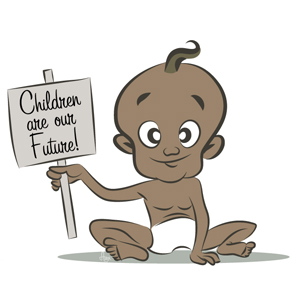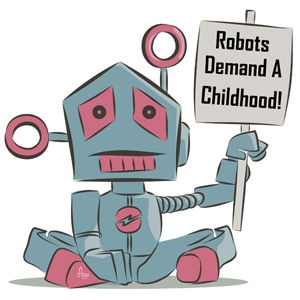
Your complimentary articles
You’ve read two of your four complimentary articles for this month.
You can read four articles free per month. To have complete access to the thousands of philosophy articles on this site, please
Visions of Society
Is An Ageing Population Our Natural Fate?
Nguyen Ba Thanh wonders if death by old age is civilisation’s destiny.
A new phenomenon, population ageing, is spreading across the Earth. As they modernize, birth rates in more than eighty countries – almost the entire top half of the development tables – have fallen below the replacement minimum of 2.1 births per female per lifetime. Highly correlated with women’s education, sub-replacement fertility rates cut across national cultures, religious heritages, or skin tones, linking Orthodox Russia, Buddhist Thailand, Muslim Iran, Confucian Korea, Catholic Brazil, godless Germany, socialist Sweden, capitalist America… As fewer youths replace their ageing parents, a sustained sub-2.1 birthrate will make a population smaller over time while its median age rises. Japan, the world’s oldest nation, with a median age of 46, is now shrinking by around 200,000 people a year. At current fertility rates, Japan’s median age will be well above 60 by the year 2100.

As laggard nations play catch-up their birthrates are dropping fast towards, and then through, the 2.1 threshold. India, on course to have the world’s biggest population, has experienced a huge drop in fertility over the last forty-six years: from 5.5 births/woman in 1970, the country is now expected to reach the replacement level by 2020. With demographic giants like India, Indonesia, Bangladesh, and Mexico crossing 2.1 within the next decade or two, will the whole species age like Japan in the twenty-second century? Germany, now the world’s second oldest nation, at median age 45, was poor, dictatorial, and full of shoeshine boys in 1916. So is it unrealistic to think of humanity having a median age of 63 in 2216? While individual countries can attract immigrants to keep their median ages in check, this won’t work on a planetary scale. To save humanity, should those highly fertile sub-Saharan populations be forever barred from modern progress? Such absurd proposals underscore the seriousness of global ageing.
Steps To Oblivion
What will it mean if humanity has an above-60 median age in the year 2216? Is population ageing to an intelligent species what physical and mental ageing is to our individual lives – a final phase we can prolong but not escape?
Let’s explore this ‘demographic fate’ hypothesis beyond our sky. If trillions and trillions of stars and planets appear and disappear obeying the same laws of physics, do smart species everywhere follow one same demographic pattern? Unless they’re immortal, all alien societies should have a measurable median age. Does that rise as their societies modernise?What if high median age concludes the natural life cycle of all intelligent species?
Humanity is but an evolved version of wild nature: same old wild instincts assisted by the best biological brain. With 95% of our DNA shared with chimps, we are evolved great apes, our society an evolved ape society. Motivated by essentially the same animalistic urges (food, sex, status, neurochemical highs), with a superior brain, humans are far better than simpler animals at fulfilling them. While all apes go for the same primeval funs, this nerdiest of species has obesity, web porn, cathouses, fashion, spirits, music, books. Our high-brow highs still come from the old chimp hormones. Although higher animals have all evolved to enjoy sex, no one else can control reproduction. Bears or boars aren’t after old age support when mating, since most aged wild creatures die alone and abandoned, yet sexual desire in the woods frequently leads to unplanned offspring. Humans, on the contrary, can use contraceptives to separate the fun and the function, and indeed have, on average, much more sex in a lifetime than the always-pregnant animals. Accordingly, while all other species will only be forced out of existence by worsening conditions, our brainpower may be giving us a uniquely human ending: a conscious and willing extinction through fun. Partying, hooking up, traveling, composing, writing, social activism… all can feel much more viscerally compelling than raising more than 2.1 babies for humanity. When served by the sharpest brain, basic animal passions can lead to death-by-fun for this most evolved life form. Even when humans become conscious of the species-wide consequences of their reproductive apathy, can they deliberately choose otherwise, turning against their own fleshly nature? Not when those primal urges fundamentally define who they are. Evolution may have come to its conceptual endpoint when the brainiest species can party itself out of existence. Even if other intelligent beings emerge on Earth after us, if those guys also drink/travel/advocate/philosophize themselves into oblivion, then the last chapter of evolution might have just been read.

Smart or dumb, perhaps no species can escape nature’s birth-death law. When a species evolves enough brainpower to survive the externally-forced hardships, it may promptly self-terminate in pursuit of fun. Everything dies eventually; even the universe is projected to die at the end of its expansion. Barring cases of youthful death (environmental suicides, random asteroid…), all cosmic civilizations might grow old and die alike, naturally and serenely.
So this four-step pattern may be commonly followed:
1) Sentient beings, freed by the technology they create, adapt to a work-lite leisured existence. As sci-fi as it first sounds, this liberation process has indeed been ongoing on Earth for a while, especially since the arrival of electricity. As the machines integrate into societies and raise human productivity exponentially, time spent working in developed countries has dropped dramatically. With their schooling decades, years off, weekends, vacations, and retirement, rich-world people have never worked this little in history and also enjoy the highest ever living standard. Give technology another century or two, and humanity will have at its service a highly autonomous computer-based economy that can cater for people’s material demands virtually by itself, unattended, lowering significantly the economic need for humans to be born to support those born before them. Very few of our descendants will be needed to keep that integrated life-support system functioning.
Babies are not born solely for economic reasons. Even if people with access to Social Security and other saving schemes no longer count on their children for old-age support, they will continue to want cute toddlers who can bring them joy. What has changed is the rationale for child-raising, which has shifted from securing late life survival to emotional fulfilment. Thanks to modern affluence and the welfare state, raising juniors, previously vital for a hunger-free old age, has become just another hobby in our brave new world.
2) As they happily enjoy their hobbies, be it shopping or reading, responsible folks won’t bear enough babies to sustain their species. This is a conscious resource allocation choice made by able-minded adults: child-rearing has always involved enormous time and money commitments. The trade-offs against other enjoyable activities being so huge, even the most generous countries are struggling to make parenting attractive to young people. A pro-child state can help a lot with the raising of an already existing youngster, by giving parents more free time and convenient facilities. However, there is not much a democratic government can do to lure young adults from the freedoms of singleness to the troubles of the stable coupled life into which most human infants are still being born. Today’s love-based unions, once formed, are also more break-up-prone than the survival-based austere marriages of our foremothers. Given basically the same window of fecundity, late-forming and unstable couples mean that fewer fertile years are being spent in a procreation-friendly setting. Moreover, even stable couples are cutting back on baby-making. Developed-world folks are having fewer children, but their houses, cars, and wardrobes are all getting bigger, they eat out and travel more often, find ample time for political activism, movie watching, intellectual questing or Facebook updating… what causes sub-replacement birth rates is our modern lifestyle, not a lack of resources for child-raising. This explains why, despite much better time and financial subsidies for child-rearing, Scandinavians don’t have more babies than America’s WASPs, who get by in a free-market jungle.

There’s absolutely nothing wrong or surprising about our modern preferences for freedom and pleasure. People are just not very candid about enjoying them more than another pregnancy. When asked in surveys, most still state an ideal family size bigger than they actually have. Wouldn’t they say the same, however, about salary or vacations? But free to choose, most people will naturally prefer easier pursuits (dog-keeping, beer drinking, gossip) to rewarding but exacting hobbies (parenting, math). Will they regret those easy choices later? If a high median age world with few children is sad and lonely, humanity can always make a U-turn and have more babies. Even a few millennia in the wrong direction would be nothing beside the billions and billions years of life afterward. The lack of a U-turn, however, would show that these loving humans don’t love cute babies sufficiently to preserve their species.
3) If people don’t want to have babies themselves, being too busy enjoying life, will they pool resources to raise the next generation collectively? Through the biggest purchasing cooperative out there, the state, humans have already set up many useful services: lighted and cleaned streets, policed neighborhoods, defended borders. Once the decision is made, emerging technologies such as an artificial uterus could be used in a system of state-commissioned boarding schools to save the day. A redesign of human society along the beehive model, where reproduction is centralized, may be technically feasible.
Is such change likely, however, in a high-median-age society? Will the aged majorities of the universe panic about their fading species? Old people have always been lukewarm to changes and philosophical about their coming individual deaths, so will there be enough voters who care about the concept of humanity to support such a radical reorganization of human life? What if, after thorough debate, the old majority of citizens happily vote against this novel use of tax money? Low-testosterone mature folks, blasé about empires and glory, might want to spend the limited available resources exclusively on their little needs. It’s not hard to imagine poll-obsessed politicians telling voters that the tax jar is for the living, not for some aggregate-level abstraction of humanity. Outside of North Korea, it’s now widely agreed that only individual organisms are real, the abstract notions of society, nation, or humanity being conceptual by-products of human interactions. After all is said and done, there may be no humanity, only humans. The majority of humans might not care much about humanity’s ever-higher median age and its consequences. The species, so real and meaningful to you, may be no more than a boring tale for others, who have more interesting options to pursue. Then what? Should a dictatorship for increased fertility be then imposed to save humanity? Can that last forever, to maintain the species forever?
4) A median-age-76 species, full of senile half-present TV/VR/pot fans, would have a much lower appetite for life. A tiny population, with a less diverse gene pool, will be immunologically weaker against new viruses. These and the other factors don’t necessarily equal imminent death for that high-median-age society. Under a lucky star, some of us will last until our 110th birthday. Some hyper-intelligent species may, with luck, last billions more years in a prolonged demographic winter. But advanced population ageing does make society much more vulnerable to adverse events. Like a fragile elder who dies of some trivial cold, an aged, weakened, and jaded population must face a long list of things that can go wrong: pandemic outbreaks, asteroid strike (it has been a while!), machine malfunctioning. For them, we have Murphy’s law: whatever can go wrong will go wrong; and eventually, it will.
Or for an anti-climax ending, the last humans may just die out boringly, comforted by robots. The machines may then go on to create their own great civilization, like the Transformers. An ageing and atrophying future doesn’t exclude scenarios where sentient robots inherit the Earth. But then again, the powerful machines, lacking common sense, without human input may simply break down.
Across The Universe

At the end of the day, is intelligent life just a regular, mortal part of nature, blindly blooming and dying like wildflowers across an oasis-dotted cosmic desert? It takes a lot of insular naiveté to see Earthlings as unique or destined for something. Our run-of-the-mill Sun is one of about 200 billion stars in this Milky Way galaxy, while there could be, for a middle estimate, 200 billion other galaxies in the observable universe. And other universes may exist beyond our cosmological horizon. The probability is that other life has to exist somewhere in all this infinite vastness. Or indeed, dotted around everywhere?
So even if humanity itself follows this four-step sequence in the next few centuries, how likely can this scenario of high-median-age extinction be for all intelligent species? Any aliens out there could be so different from us that none of our concepts would apply to them. ETs will be truly different if they are immortal. Biologically, however, there may be no immortal life anywhere, as the universe itself is physically dispersing towards a scheduled demise. You’re born, you change, then you die. In this sense, all lives – you, me, the aliens ten billion light years away – are equal before time. Time unifies all creatures of the universe.
Is the ageing and atrophy of robot-freed societies the best-supported explanation for the aliens’ no-show, so far? We observe ageing and atrophy in humanity, the one high-tech species we can study. But why would we so arrogantly assume that they would want to meet us anyway? Absent survival pressures from, say, a dying planet, high-median-age societies may not find space conquest very appealing. Old folks are less starry-eyed than the young. Why bother going to other worlds if all you will see is the same cycle everywhere? Going to the stars sounds terrific, but what about the aftermath? Resettling to a faraway star to do what? To resume there the demographic mess that’s happening here and now?
Hollywood blockbusters aside, we are all perhaps closer to Hernán Cortés, the young, hungry, and brutal Spanish conquistador, than any advanced aliens are. Technological progress has given us barely a hundred years of prosperity, and already many richer human societies want to think twice about contacting primitive Amazon tribes. So why should the long-living aliens be different from the old and apathetic Earthlings around here? Sophisticated species who master interstellar travel may have had millennia of good high-tech life, and have lost interest in searching for aliens. A general awareness of other species’ existence out there could be enough for those mellow old-timers.
Even with the super slim odds of, say, one advanced civilization for every 10,000,000,000 stars, there should still be around 4,000,000,000,000 civilizations alive within our observable universe. An intelligent species fades here, another pops up in a nearby galaxy… Yet another day in infinity. No good, bad, or purpose to it: it’s all wild nature.
© Nguyen Ba Thanh 2016
Nguyen Ba Thanh from Hanoi runs the blog demographicfate.com, which chronicles demographic ageing around the globe. He has an MA in Political Science from the University of Toulouse.









